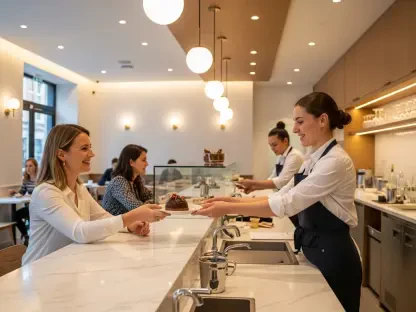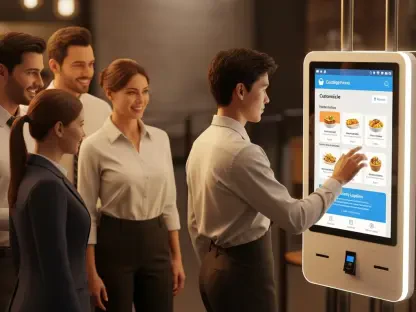Short introductionI’m thrilled to sit down with Katarina Railko, a seasoned expert in hospitality with deep roots in the travel and tourism industry. Katarina has honed her expertise over years of navigating the ever-changing landscape of travel tech and guest experiences, while also becoming a prominent voice in entertainment and events, particularly through her work with expos and conferences. Today, we’re diving into the transformative trends shaping the travel sector, from cutting-edge technologies like AI to evolving guest expectations and innovative business strategies that are redefining how we explore the world.
How did you first see technology beginning to reshape the travel and hospitality industry, and what early challenges did companies face in adapting to those changes?
When technology started making waves in travel, it was a game-changer, but not without hiccups. I remember the early days of online booking platforms emerging during turbulent times like the dot-com bubble. Companies had to build trust with consumers who were skeptical about booking trips online, while also dealing with shaky infrastructures and limited internet access. The challenge was not just adopting tech, but doing so in a way that didn’t alienate customers who were used to traditional travel agents. It took resilience and a focus on user-friendly design to turn those early struggles into the seamless systems we see today.
What’s your perspective on the current excitement around artificial intelligence in travel—do you think it’s sustainable, or are we at risk of overhype?
I think the enthusiasm for AI in travel is well-founded, but we need to temper it with realism. Unlike past tech bubbles, AI has tangible applications that are already showing value—like personalizing customer experiences or streamlining operations. However, not every company jumping on the bandwagon will succeed if they’re just chasing trends without a clear strategy. The ones that thrive will be those using AI to solve real problems for travelers, not just to look innovative. It’s about balance, not blind optimism.
Can you share some ways AI is currently enhancing operations or customer experiences in the travel sector?
Absolutely. AI is popping up everywhere, from chatbots handling basic customer inquiries to more sophisticated uses like optimizing pricing strategies. For instance, some platforms use AI to predict demand and adjust rates in real-time, which helps both businesses and customers. On the customer service side, AI tools are cutting down response times by automating routine tasks—like confirming reservations or providing travel updates. It’s not just about efficiency; it’s about making the traveler feel heard and supported without long wait times.
There’s a lot of talk about agentic AI, which can handle complex tasks independently. How do you see this kind of technology changing the travel experience?
Agentic AI is exciting because it takes automation to the next level. Imagine a scenario where your flight is delayed, and instead of you scrambling to adjust plans, the AI proactively contacts your hotel to update your check-in time and reschedules your dinner reservation. It’s like having a personal assistant that anticipates your needs. This could significantly reduce stress for travelers, making the journey feel more cohesive rather than a series of disconnected bookings. It’s about creating a truly integrated travel experience.
Could you paint a picture of a specific situation where agentic AI might step in to smooth out a traveler’s journey?
Sure, let’s say you’re on a business trip, and your connecting flight gets canceled. Normally, you’d be stuck on hold with airlines or frantically emailing your hotel. With agentic AI, the system instantly detects the issue, rebooks you on the next available flight, notifies your hotel of the delay, and even adjusts a car rental pickup time—all while sending you a simple update. It’s not just solving one problem; it’s orchestrating the entire ripple effect of that disruption, so you can focus on your meeting instead of logistics.
Beyond technology, how are guest expectations evolving, and what new offerings are companies exploring to meet those demands?
Travelers today want more than just a place to stay; they’re craving unique, personalized experiences. We’re seeing a shift toward curated services—think spa treatments or private chef dinners arranged through your booking platform. These add-ons cater to a desire for convenience and luxury that hotels have traditionally offered. Interestingly, locals are also tapping into these services, which shows how travel platforms are becoming lifestyle hubs, not just vacation tools. It’s about meeting people where they are, whether they’re tourists or residents.
Why do you think some travelers still gravitate toward traditional hotels, and how can alternative platforms bridge that gap?
Hotels often win out because they offer consistency and services that many alternative accommodations lack—like on-site dining, concierge support, or daily housekeeping. Travelers, especially those on business or seeking reliability, value that predictability. Platforms outside the hotel space can close this gap by partnering with service providers to offer comparable amenities or by ensuring their listings meet higher standards of quality and support. It’s about blending the charm of unique stays with the reliability of traditional hospitality.
How significant do you think the revenue potential is for expanding into additional services beyond core bookings?
It’s massive. Adding services like guided tours, wellness experiences, or even in-home dining can open up entirely new revenue streams. These offerings not only boost income directly but also make platforms stickier—travelers are more likely to return if they can get everything in one place. Plus, it attracts a broader audience, including those who might have previously chosen hotels for the added perks. If done right, this could be a multi-billion-dollar opportunity for the industry.
We’re seeing more collaboration between traditional hotels and alternative booking platforms. What’s driving this shift, and how does it benefit both sides?
This trend comes from recognizing that competition doesn’t have to be a zero-sum game. Travelers often bounce between hotels and home-sharing options based on availability or preference, so working together makes sense. For hotels, especially boutique or independent ones, partnering with broader platforms offers exposure to a wider, often younger audience, plus lower commission rates in some cases. For the platforms, it expands their inventory and appeals to travelers seeking variety. It’s a win-win that ultimately prioritizes customer choice.
What is your forecast for the future of technology in the travel industry over the next decade?
I believe we’re on the cusp of a truly transformative decade. Technology, especially AI and machine learning, will become even more intuitive, predicting traveler needs before they even articulate them. We’ll likely see deeper integration across travel components—think seamless coordination between flights, stays, and local experiences, all powered by smart systems. At the same time, I expect a stronger focus on sustainability, with tech helping to reduce the carbon footprint of travel. The challenge will be ensuring these advancements remain accessible and don’t widen the gap between tech-savvy and less connected travelers. It’s an exciting time, but it’ll require thoughtful execution.









